Recommendation letter template for phd
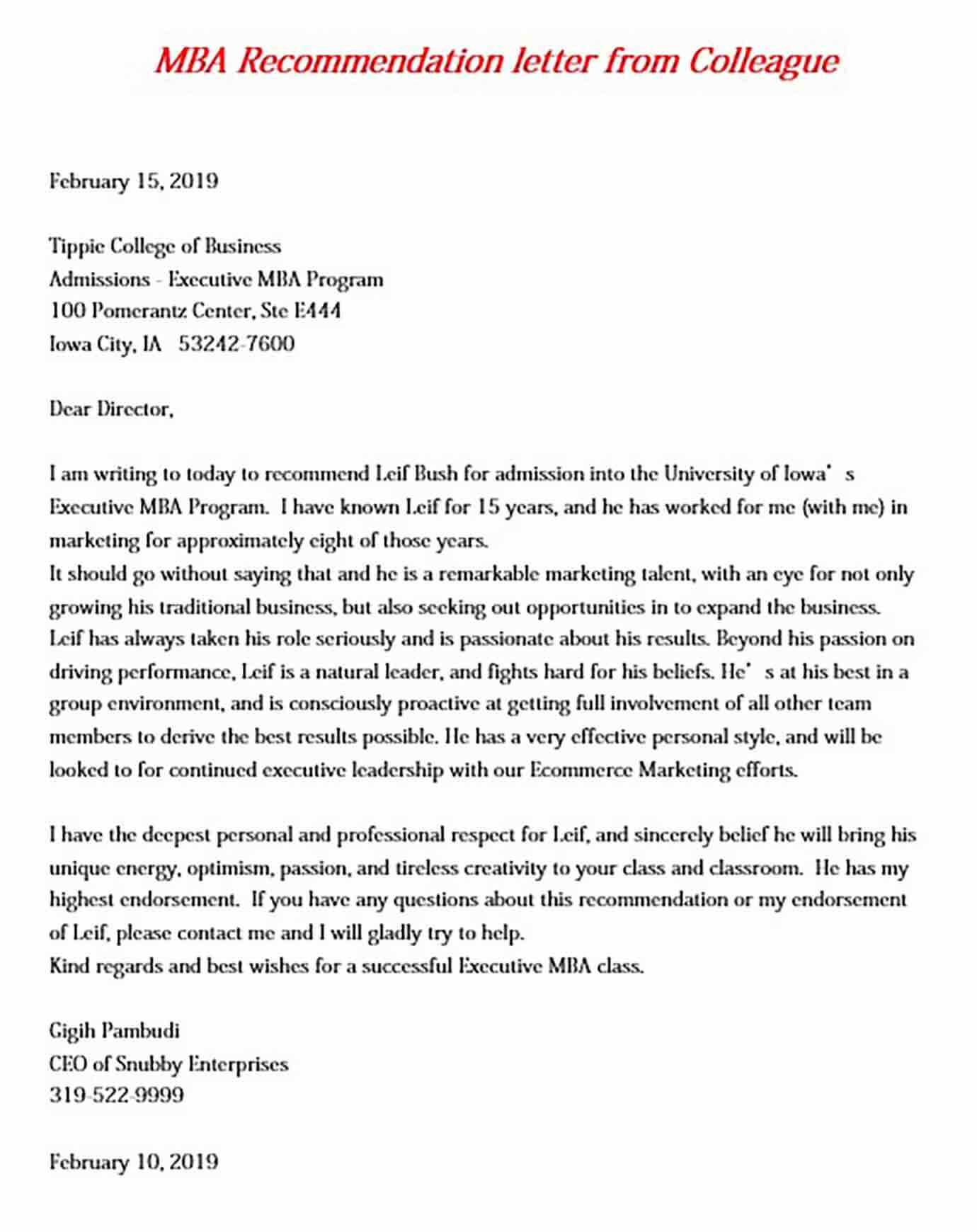
Begin the recommendation letter with a clear statement of your relationship with the applicant. Mention how long you’ve known them and in what capacity, whether as a mentor, supervisor, or professor. If applicable, highlight any projects or research collaborations you’ve worked on together to establish context.
Next, move on to describing the candidate’s academic achievements. Focus on their strengths that directly align with the PhD program they are applying to. Include specific examples of their work, whether it’s a thesis, research project, or paper that demonstrates their analytical skills, critical thinking, and academic rigor.
Don’t forget to highlight their interpersonal and communication skills. PhD programs often require collaboration, so it’s important to mention the candidate’s ability to work with peers, present ideas clearly, and contribute to group discussions. Illustrating these qualities with examples will provide a complete picture of their capabilities.
Finally, conclude with a strong endorsement. Emphasize your confidence in their potential for success in the PhD program and beyond. A brief mention of their future prospects can strengthen the recommendation, showing you believe in their long-term academic goals.
Recommendation Letter Template for PhD
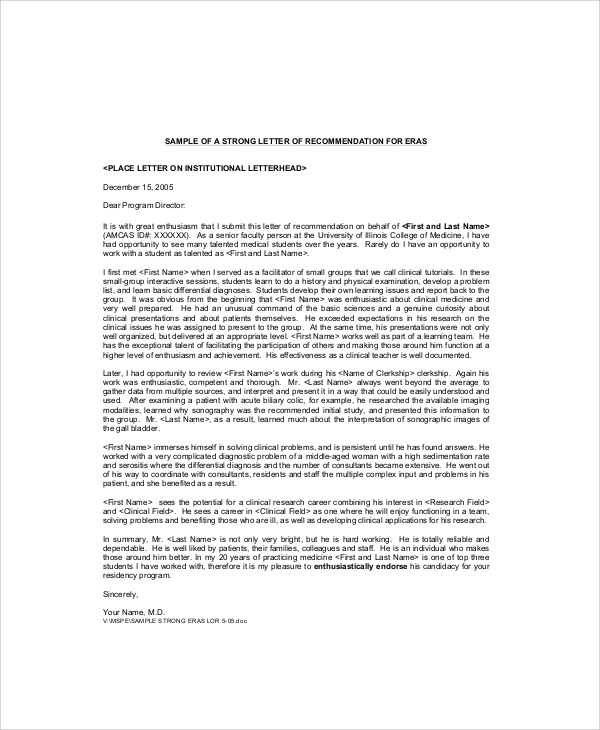
When writing a recommendation letter for a PhD candidate, focus on their research abilities, intellectual curiosity, and potential for contributing to the academic community. The letter should be a reflection of their skills, character, and dedication. Start by stating how you know the candidate, the context of your relationship, and the length of time you’ve worked with them.
Introduction
It’s important to describe the candidate’s background and achievements clearly. Mention specific projects, research, or coursework that demonstrate their academic and intellectual strengths. Be concise and avoid general praise without examples. Instead, link their abilities to outcomes. For example, if they presented a strong research paper, explain the impact it had in the field or the effort involved in its completion.
Research Skills and Personal Qualities
Next, discuss the candidate’s research skills in detail. Highlight their ability to approach problems, conduct research, and analyze data. If applicable, provide examples of how the candidate showed innovation in their work or addressed challenges. It’s equally important to describe their personal qualities: their work ethic, curiosity, teamwork, and resilience. These qualities speak to their readiness for the demands of a PhD program.
End with a clear recommendation, asserting why the candidate is a strong fit for the PhD program. Include any relevant future potential you see in them and express your confidence in their ability to succeed in advanced academic work.
How to Start a PhD Recommendation Letter: Crafting the Opening
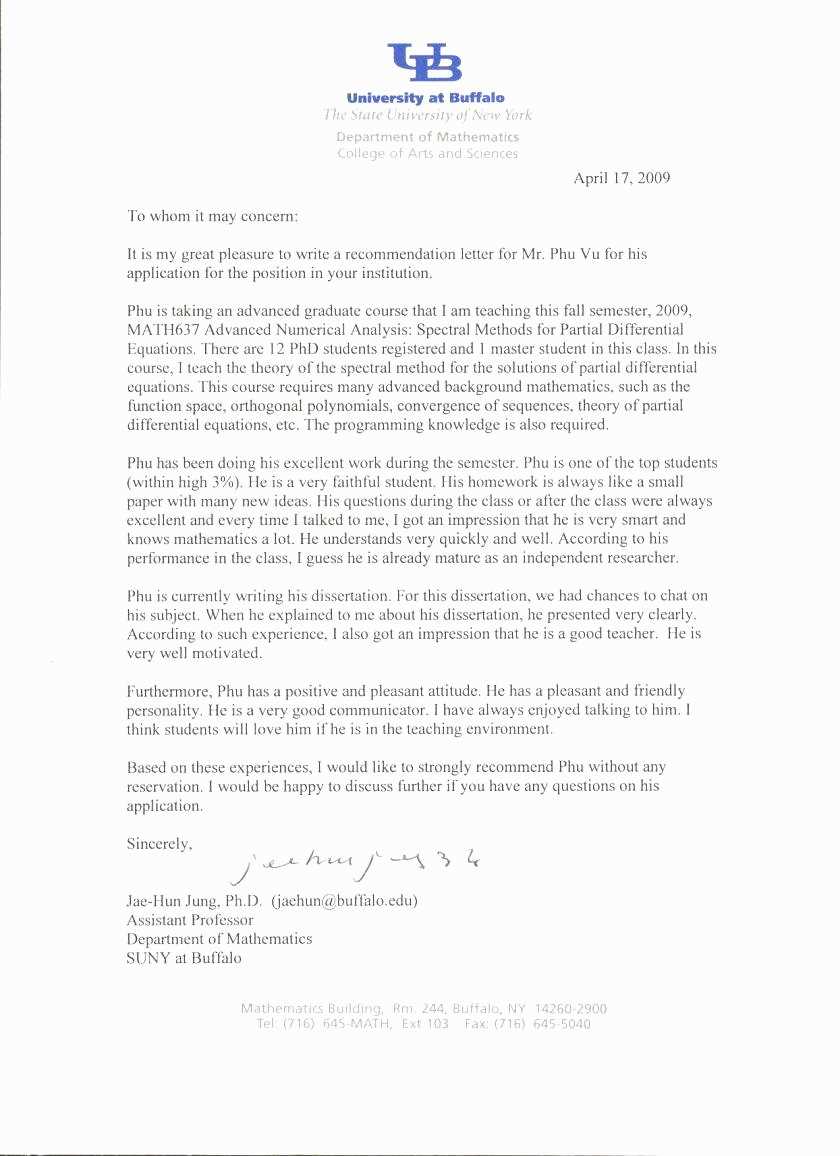
The opening of a PhD recommendation letter must immediately grab attention and set the tone for the rest of the letter. To do this, focus on a strong, direct statement that reflects the candidate’s qualifications and your relationship with them.
- Begin by clearly stating how long and in what capacity you have known the applicant. For example, mention your role as a professor, mentor, or supervisor, and the specific course or project you worked on together.
- Highlight the candidate’s specific strengths that are relevant to the PhD program. This could include intellectual ability, research skills, or a unique perspective they bring to their field.
- Ensure the tone is positive but professional. Your opening should give the reader a reason to continue reading. Avoid vague or generic statements, and focus on concrete examples of the applicant’s skills and potential.
By setting up a direct connection between your experience with the candidate and the program they’re applying for, you lay the groundwork for a persuasive letter. Be specific and confident in your endorsement from the very start.
Highlighting Academic Achievements and Research Potential
Begin by outlining the candidate’s most significant academic accomplishments. For example, mention high grades, awards, or distinctions received during their coursework. Specific examples of strong performance in challenging courses or relevant subject areas can make the candidate stand out. It’s also effective to refer to any leadership roles in academic groups or relevant student organizations that display initiative and commitment to their studies.
Research Contributions
Discuss the candidate’s involvement in research projects, including any independent studies, lab work, or published papers. Highlight their capacity for critical thinking, problem-solving, and creativity. If the candidate collaborated with faculty or contributed to groundbreaking research, mention this. Describe their ability to apply theoretical knowledge to real-world issues, as well as any notable results or innovations from their research efforts.
Potential for Future Research
Provide a clear assessment of the candidate’s research potential by pointing to specific qualities that would make them a valuable addition to any PhD program. This might include their ability to think independently, pursue novel ideas, or tackle complex problems. Mention any specific research areas or projects they have shown interest in and demonstrate how their skills align with future academic goals.
| Academic Achievement | Research Contribution | Research Potential |
|---|---|---|
| Top grades in advanced courses on XYZ | Contributed to research on ABC, resulting in a publication | Demonstrates a passion for exploring complex topics like DEF |
| Leadership in academic group XYZ | Led a small research project investigating GHI | Shows initiative in proposing new research directions |
Describing the Candidate’s Specific Skills and Strengths
The candidate consistently demonstrates exceptional analytical skills, particularly in data interpretation and problem-solving. Their ability to approach complex issues from multiple perspectives leads to innovative solutions. For instance, in their recent project on [specific topic], they identified key trends that others overlooked, providing critical insights that shaped the direction of the research.
In addition to their analytical prowess, the candidate excels at clear and concise communication. Whether presenting findings to a team or writing research papers, they are able to articulate complex concepts with clarity, making them accessible to both technical and non-technical audiences. This skill has proven invaluable in collaborative environments, ensuring all team members are aligned and informed.
The candidate’s organizational skills are equally impressive. They consistently meet deadlines, even when handling multiple projects at once. Their attention to detail ensures that no aspect of the research is overlooked, and they have a natural ability to prioritize tasks efficiently without sacrificing quality. During their time at [Institution], they managed several concurrent research initiatives, all of which were completed on schedule with outstanding results.
Moreover, their adaptability in high-pressure situations stands out. In circumstances where deadlines are tight or unexpected challenges arise, the candidate remains calm and focused, adjusting their approach as necessary to meet the demands of the project. This resilience has allowed them to navigate complex tasks with confidence and success.
The candidate also has a strong technical skill set, particularly in [specific software/tools/methodologies]. They apply these tools with precision, optimizing workflows and ensuring the research is conducted using the most appropriate methodologies. Their technical expertise was instrumental in the success of [specific project], where they led the integration of [specific tool/technology] to enhance data accuracy and processing speed.
Lastly, the candidate shows exceptional leadership potential. They have demonstrated the ability to guide and mentor junior colleagues, helping them develop their skills and contributing to a positive, collaborative environment. Their willingness to share knowledge and support others’ growth highlights their maturity and commitment to advancing not only their own work but the success of the team as a whole.
Providing Evidence of the Candidate’s Contributions and Impact
To demonstrate the candidate’s impact, focus on tangible outcomes and direct contributions. Highlight specific projects, papers, or initiatives the candidate led or played a key role in. Clearly outline their individual contributions and how these efforts contributed to the advancement of the research, department, or field. Avoid vague statements and provide quantifiable metrics, such as publications in reputable journals, presentations at conferences, or successful collaborations.
Describe the candidate’s ability to solve complex problems. Share examples where the candidate independently tackled significant research questions or designed novel methodologies. Point out instances where their work led to practical applications, breakthroughs, or improvements in existing theories or practices. If possible, mention any recognition they received for their work, such as awards or invitations to prestigious events.
It’s also valuable to demonstrate the candidate’s ability to work effectively with others. Mention their role in team-based research and collaborations, showcasing how their contributions enhanced the work of peers. Highlight any leadership roles they took on, whether in mentoring students, guiding research projects, or organizing academic events.
By presenting concrete examples and outcomes, you establish a clear picture of the candidate’s academic and professional impact. This makes their potential as a future researcher and scholar evident to any admissions committee.
How to Convey Personal Qualities That Make the Candidate Stand Out
Focus on specific qualities that highlight the candidate’s unique strengths. Showcase how they approach challenges, work under pressure, and collaborate with others. Rather than general traits, provide concrete examples from their academic or professional experiences that illustrate these attributes. For example, instead of simply stating “strong leader,” describe a situation where they successfully led a research project or managed a team in a complex task. This gives the reader a clear understanding of their abilities in action.
Provide Concrete Examples of Problem-Solving and Innovation
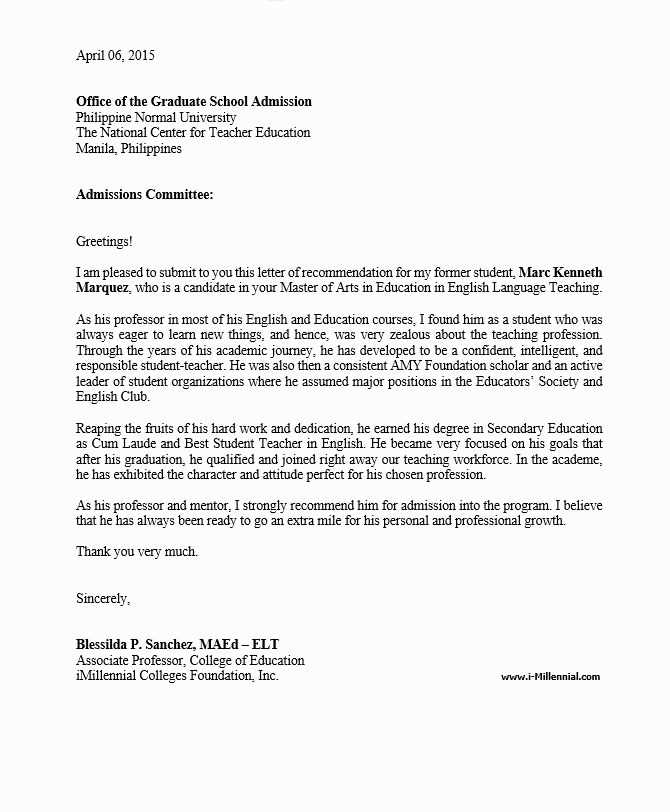
When describing how the candidate handles obstacles, pinpoint instances where they demonstrated critical thinking or problem-solving skills. Did they find a creative solution to a complicated issue during their research? Did they improve a process or come up with a new approach to a task? These examples can demonstrate their ability to think outside the box and tackle challenges head-on, setting them apart from others.
Highlight Their Work Ethic and Commitment
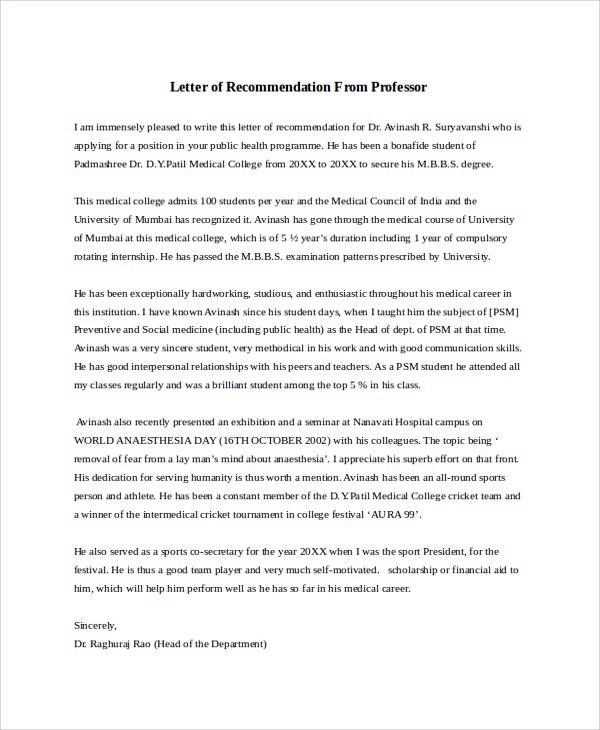
Another way to make the candidate stand out is by illustrating their dedication and perseverance. Highlight times when they showed exceptional focus, met tight deadlines, or made sacrifices to achieve a goal. These qualities often speak louder than mere academic achievements and provide insight into the candidate’s character and drive.